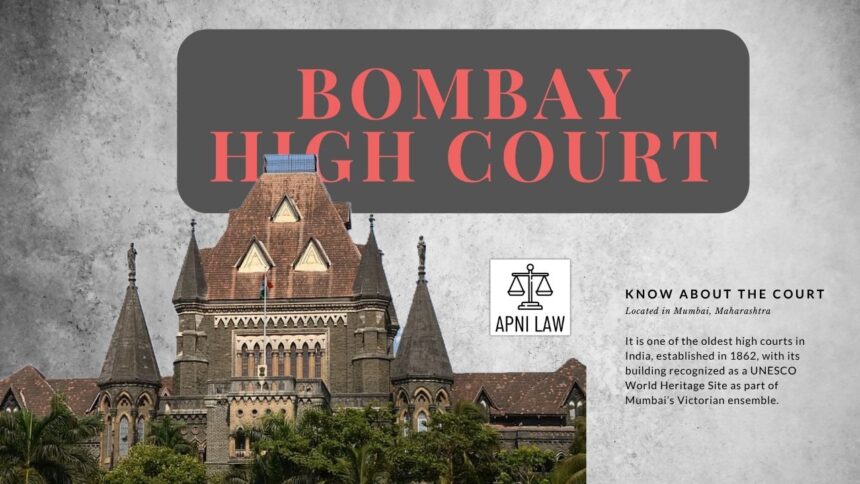Introduction
The Bombay High Court has clarified how transfer applications must be handled when two petitions under the Hindu Marriage Act are filed by the same parties in different courts. Its decision underscores the primacy of the first-filed petition under Section 21A of Hindu Marriage Act and sets out how courts should deal with later petitions and transfer requests. The ruling comes at a time when matrimonial disputes often get lodged in multiple jurisdictions, raising concerns about forum-shopping and duplication of litigation.
Judgment Name
The case is titled Suprabha Nitesh Patil @ Suprabha Anant Khot v. Nitesh Gajanan Patil (Miscellaneous Civil Applications Nos. 124 of 2024) and was decided by Justice Rajesh S. Patil of the Bombay High Court. The ruling was published on 21 October 2025.
Facts of the Case
In this case, the husband filed a petition for divorce under Section 13 of the Hindu Marriage Act before the Family Court at Bandra, Mumbai, on 5 December 2022. Nine days later, on 14 December 2022, the wife filed her own petition for divorce before the Civil Judge (Senior Division), Kalyan, where she resided. Both petitions involved the same marriage and the same parties.
Each party then sought transfer of the other’s petition to their preferred forum. The wife sought transfer of her husband’s petition filed at Bandra to Kalyan, while the husband sought transfer of the wife’s petition filed at Kalyan to Bandra. Thus, two competing transfer applications came up, one by the wife and one by the husband. The husband’s petition was the first one filed, while the wife’s followed soon thereafter. The dispute centered on which forum would proceed with both matters and whether the later petition could continue in its separate forum or had to be moved to the same court as the first petition.
What the Court Says
The Court held that Section 21A of the Hindu Marriage Act governs situations where one petition for divorce or judicial separation is followed by another petition between the same parties under the Act. The Court noted that Section 21A(2)(b) mandates that when proceedings are filed by one spouse for divorce or judicial separation, and thereafter another proceeding is filed by the other spouse in another district court, the later petition must be transferred to the district court where the earlier petition was presented. Both petitions must then be heard and disposed of together by the same court.
Applying this provision, the Court ruled that the wife’s petition filed later at Kalyan must be transferred to the Family Court at Bandra where the husband’s earlier petition was pending. The Court rejected her argument based on Section 24 of the Code of Civil Procedure and on precedents like N.C.V. Aishwarya v. A.S. Saravana Karthik Sha (2022), which emphasised party convenience. Justice Patil clarified that those precedents did not involve Section 21A and hence could not override the statutory mandate.
The Court made it clear that when Section 21A applies, the convenience of parties is secondary to the statute’s objective of preventing parallel proceedings. Since the husband’s petition at Bandra was filed first, the later petition at Kalyan had to be transferred to Bandra. The Court also noted that while the wife raised concerns about the distance between Kalyan and Bandra, her inconvenience could be mitigated through video conferencing facilities or travel expense reimbursement rather than by changing the forum. The wife’s transfer application was therefore dismissed.
Implications
The ruling carries important implications for matrimonial litigation in India. It reinforces the primacy of the first-filed petition, ensuring that when two petitions under the Hindu Marriage Act involve the same parties, jurisdiction remains with the court of the earlier petition. This interpretation prevents litigants from engaging in forum-shopping or filing multiple petitions in different jurisdictions to gain procedural advantage.
The decision also limits the role of convenience in transfer matters. While under Section 24 of the Civil Procedure Code the convenience of parties is often a key factor, the Court clarified that this principle cannot override the explicit language of Section 21A. The statutory provision must prevail whenever two petitions exist between the same parties under the Act.
By requiring both petitions to be heard in the court of the first-filed case, the judgment helps avoid conflicting decisions, duplication of proceedings, and unnecessary delays. It brings coherence and efficiency to matrimonial litigation and promotes consistency in adjudication. For lawyers and litigants, the judgment provides clear guidance to file petitions carefully and to check for any prior petitions between the same parties before initiating proceedings.
The ruling also illustrates how courts can balance fairness and practicality. While recognising the wife’s difficulties in attending hearings at Bandra, the Court adopted a pragmatic approach by suggesting modern alternatives such as virtual hearings. This signals that the judiciary aims to combine statutory compliance with flexibility in procedure.
In conclusion, the Bombay High Court’s decision in Suprabha Nitesh Patil v. Nitesh Gajanan Patil provides a definitive interpretation of Section 21A of the Hindu Marriage Act. It establishes that when two petitions are filed by the same parties in different courts, the later one must be transferred to the court where the first petition is pending. The ruling strengthens the legislative intent to avoid conflicting jurisdictions and ensures that matrimonial disputes are resolved efficiently, fairly, and in accordance with the constitutional principles of justice and uniformity.







